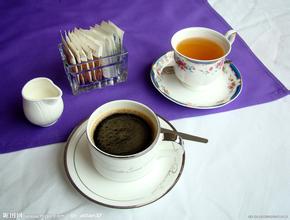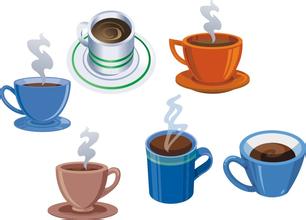Introduction of boutique coffee with bright fruit flavor in Kenyan coffee manor
China Coffee Network
The coastal area is flat, and most of the rest is plateau with an average altitude of 1500 meters. the Great Rift Valley
Kenya's highest peak-Mount Kenya
Kenya's highest peak-Mount Kenya
The east branch cuts the plateau vertically from north to south, dividing the plateau into east and west parts. The valley floor of the Great Rift Valley is 450-1000 meters below the plateau and 50-100 kilometers wide. There are lakes of varying depths and many volcanoes. The northern part is desert and semi-desert zone, accounting for about 56% of the total area of the country. Mount Kenya in the central highlands is 5199 meters above sea level, the highest peak and the second highest peak in Africa, with snow on its summit all year round. The national emblem of Kenya, established in 1963 at an altitude of 4321 meters above sea level, has a fusiform coat of arms consistent with the national flag as the center, with a golden lion on each side, a limb holding a spear and a limb holding the coat of arms. The white rooster with an axe in the center of the back is the emblem of the Kenya African National Union. According to local tradition, the rooster symbolizes a new life. The two lions symbolize national sovereignty and dignity, as well as Kenya's links with Britain. Double Lion Foot is the second largest mountain in Africa-Kenya volcano. It treads fertile land, full of coffee, citrus, sisal tea, corn and pineapple. It is full of fruits and fragrance. This is the epitome of Kenya people's peaceful life and national prosperity. Under the coat of arms is a brown ribbon with the Swahili word for "coexistence," expressing the Kenyan people's desire for peace, fraternity, freedom and equality.
The famous equatorial snow mountain is Mount Kenya, where a famous orchid grows. This is the national flower of modern Kenya-Kenshan Orchid. The leaves of Ken Shanlan are wide and thick, like a belt carved by King Bi. The petite white flower consists of six oval petals. There is a charming little red dot in the center of the flower. On a string of long inflorescences composed of dozens of small flowers, there are neat red white flowers arranged on both sides, slightly drooping, showing the unique charm of Kenshan Orchid.
Coffee professionals consider Kenyan coffee to be one of their favorite products because Kenyan coffee contains every feeling we want from a good cup of coffee. It has a wonderful, satisfying aroma, balanced acidity, well-proportioned particles and excellent fruity notes. The taste is unique and there is almost no coffee like it. Kenya coffee is characterized by a distinct fruity aroma. Try looking for this flavor in your coffee and notice how it feels in your mouth. One of the most common fruit fragrances is citrus. Kenyan coffee has multi-layered flavors and juicy acidity, perfect grapefruit and wine flavors, and moderate body. Kenyan coffee gained further fame with the Hollywood blockbuster Out of Africa.
It entered Kenya in the 19th century, when Ethiopian coffee drinks were imported to Kenya via South Yemen. But it wasn't until the early 20th century that bourbon coffee trees were grown by St. Austin Mission introduced.
Kenya coffee is mostly grown at altitudes of 1500- 2100 meters and harvested twice a year. To make sure only ripe berries are picked, people have to make about seven rounds through the woods. Kenyan coffee is grown by smallholders who harvest the coffee and send it fresh to a cooperative washing station, which sends the washed and dried coffee to the cooperative in the state of "parchment beans"(i.e. beans covered with an endocarp)("parchment beans" are the final state of the beans before peeling). All the coffee is collected together and the grower charges an average price based on its actual quality. This method of buying and selling generally works well and is fair to both growers and consumers.
Kenya Coffee-Current Status
Kenya Coffee Bean Kenya takes the coffee industry extremely seriously and it is illegal to cut down or ring coffee trees here. Kenya's coffee buyers are world-class buyers of premium coffee, and no country grows, produces and sells coffee as consistently as Kenya. All coffee beans are first acquired by the Coffee Board of Kenya (CBK), where they are appraised, graded and then sold at weekly auctions, where they are no longer graded. The Kenya Coffee Board acts only as an agent, collecting coffee samples and distributing them to buyers so that they can determine price and quality. Nairobi auctions are held for private exporters and the Kenya Coffee Board pays growers below-market prices. The best coffee grade is bean berry coffee (PB), followed by AA++, AA+, AA, AB, etc., in that order. Fine coffee is shiny, delicious and slightly aromatic. The auction is also organized to meet the needs of the distributor. These auctions usually sell small quantities (3-6 tons each), with samples bearing the grower's logo for buyers to appreciate. After auction, exporters pack according to different flavors, different qualities and quantities required by blenders. This provides a great deal of flexibility for the deployer. Quality-conscious germans and nordics are long-term buyers of kenyan coffee. Good Kenyan coffee is aromatic, rich, fruity and rich in taste. Kenya coffee has a wonderful fruity flavor, with a blackberry and grapefruit flavor, is a favorite of many coffee lovers. This coffee has an excellent medium purity, crisp and refreshing taste. Fresh flavor and best for iced coffee in summer. When tasting this coffee, if it is accompanied by fruit with acidity such as grapefruit, it will definitely give me the best coffee experience. "Less coffee, more fruit tea" is the common feeling many people have about this light roasted Kenyan coffee.
In addition to the obvious and fascinating fruit acidity, Kenya coffee is mostly grown by small coffee farmers in a variety of different environments, with different climates and rainfall each year, bringing a variety of distinct and unique personalities. Take AAPlus grade "KenyaAA+Samburu" as an example. Samburu of 2001 has strong dark plum fragrance, low acidity and strong taste. Samburu newly harvested in winter of 2002 presents completely different flavor. Mulberry berry and green plum, accompanied by a little spicy flavor. After drinking, it has sweet fragrance of green tea. The acidity is slightly higher than that of the previous year, and the taste is still strong. The usual Kenyan flavors are not intense, but have fruity bright flavors, some with spices and some with red wine aromas

Important Notice :
前街咖啡 FrontStreet Coffee has moved to new addredd:
FrontStreet Coffee Address: 315,Donghua East Road,GuangZhou
Tel:020 38364473
- Prev

Brazilian Coffee Manor with faint grassy fragrance introduction to Fine Coffee
Brazilian coffee generally refers to coffee produced in Brazil. There are many kinds of coffee in Brazil. Like other Arabica coffee, Brazilian coffee is called Brazilian coffee Brazils to distinguish it from Milds coffee. The vast majority of Brazilian coffee is unwashed and sun-dried and is classified according to the name of the state of origin and port of transport. Brazil has 21 states and 17 states produce coffee, but among them
- Next

Introduction of fine coffee beans from Rwanda coffee manor with soft and full-bodied taste
When it comes to the flavor of Rwanda, I am ashamed of the biased perception of Rwanda in the first place. I still remember that when I first came into contact with coffee, smell training was very resistant to No. 3 in the 36-smell bottle, and I even felt nauseous when I smelled it. So subjectively, I always like to make up the taste similar to grass automatically for the smell of green peas. Due to lack of experience in tasting and production,
Related
- Detailed explanation of Jadeite planting Land in Panamanian Jadeite Manor introduction to the grading system of Jadeite competitive bidding, Red bid, Green bid and Rose Summer
- Story of Coffee planting in Brenka region of Costa Rica Stonehenge Manor anaerobic heavy honey treatment of flavor mouth
- What's on the barrel of Blue Mountain Coffee beans?
- Can American coffee also pull flowers? How to use hot American style to pull out a good-looking pattern?
- Can you make a cold extract with coffee beans? What is the right proportion for cold-extracted coffee formula?
- Indonesian PWN Gold Mandrine Coffee Origin Features Flavor How to Chong? Mandolin coffee is American.
- A brief introduction to the flavor characteristics of Brazilian yellow bourbon coffee beans
- What is the effect of different water quality on the flavor of cold-extracted coffee? What kind of water is best for brewing coffee?
- Why do you think of Rose Summer whenever you mention Panamanian coffee?
- Introduction to the characteristics of authentic blue mountain coffee bean producing areas? What is the CIB Coffee Authority in Jamaica?

